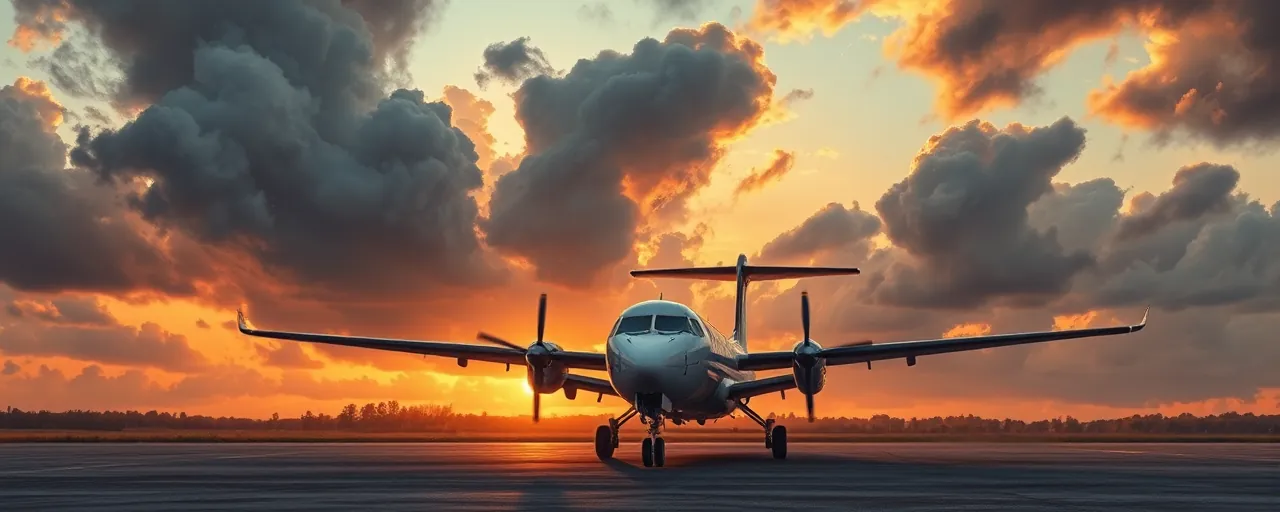A Breach in the Cockpit
The skies over America are no place for reckless gambles. Yet, that’s exactly what Maine Instrument Flight of Augusta, Maine, delivered when it allegedly flew 10 revenue flights with four pilots who dodged the Federal Aviation Administration’s ironclad drug and alcohol testing rules. The FAA isn’t playing around, slapping a $65,000 civil penalty on the company for flouting regulations designed to keep passengers and crew safe. This isn’t just a paperwork slip-up; it’s a glaring red flag that demands accountability.
Between February and September 2023, these flights took off without the assurance that the men and women at the controls were free of substances that could cloud judgment or slow reflexes. The FAA’s rules aren’t optional; they’re the backbone of an aviation system that millions rely on daily. When a company skirts them, it’s not just breaking the law, it’s rolling the dice with lives. Maine Instrument Flight’s upcoming meeting with the FAA better yield answers, because this kind of lapse cuts to the core of public trust.
The Cost of Cutting Corners
Let’s be clear: aviation isn’t a sandbox for shortcuts. The FAA’s drug and alcohol testing mandates, like the ‘bottle-to-throttle’ rule barring pilots from drinking within eight hours of duty, exist because history proves the stakes are sky-high. Look back to 1983, when a cargo plane crashed after marijuana and phenylpropanolamine scrambled the crew’s senses. Or consider the data: pilots testing positive for drugs are nearly three times more likely to crash. Maine Instrument Flight’s failure to test its pilots isn’t a minor oversight; it’s a potential prelude to disaster.
The FAA doesn’t mess around when companies play fast and loose. Just look at Asia Pacific Airlines, hammered with a $2.9 million fine for using unqualified pilots, or SpaceX, which coughed up $633,009 for launch license violations. These aren’t slaps on the wrist; they’re wake-up calls. Maine Instrument Flight’s $65,000 penalty might seem light by comparison, but it’s a signal that regulators won’t tolerate even the hint of negligence. Companies that can’t handle the rules don’t belong in the air.
Safety Over Sympathy
Some might argue this is overreach, that a small outfit like Maine Instrument Flight deserves a break. They’ll say the pilots probably weren’t impaired, that the FAA’s piling on with bureaucracy. Nonsense. The rules aren’t there to coddle; they’re there to protect. If those pilots were clean, testing would’ve proved it. Instead, the company left a gaping hole in accountability. Passengers don’t board planes hoping for the best; they expect it. Letting this slide would greenlight every fly-by-night operator to skip the hard stuff and pray nothing goes wrong.
The evidence backs this up. Marijuana’s the top illicit drug popping up in pilot toxicology reports, and amphetamine use is climbing. Alcohol missteps still happen too; pilots have been caught trying to fly with blood alcohol levels double the FAA’s 0.04% limit. Rehabilitation programs like HIMS can help struggling pilots, sure, but only after the system catches them. Maine Instrument Flight didn’t even try. That’s not a business hiccup; it’s a betrayal of the public’s faith.
A System That Works, If Enforced
The FAA’s framework isn’t broken; it’s battle-tested. Since 1988, when drug testing kicked in, and 1994, when alcohol rules tightened, aviation safety’s gotten stronger. Random tests, post-accident checks, and a no-nonsense 25% drug and 10% alcohol testing rate keep the industry honest. The proof? Fatal accidents tied to substance use are rare, despite millions of flights yearly. But that record holds only if everyone plays by the book. Maine Instrument Flight didn’t, and now it’s facing the music.
Contrast this with the chaos of lax oversight. Early 2025 saw 87 aviation accidents, a spike that’s got regulators on edge. Penalties are climbing too; JetBlue shelled out $2 million for misleading passengers with delayed flights. The FAA’s not afraid to hit hard when it matters. Maine Instrument Flight’s case isn’t about crushing a small player; it’s about keeping the system airtight. Anything less invites trouble we can’t afford.
No Room for Weak Links
This isn’t about piling on Maine Instrument Flight; it’s about drawing a line. Aviation’s a privilege, not a free-for-all. Companies that can’t meet the FAA’s standards, whether it’s testing pilots or maintaining planes, don’t deserve to fly. The $65,000 fine is a start, but the real test is what comes next. Will the company shape up, or will it double down on excuses? The FAA’s got a job to do: keep the skies safe, not babysit scofflaws.
America’s aviation system thrives because it demands excellence. Passengers, crew, and communities on the ground deserve nothing less. Maine Instrument Flight’s lapse is a stark reminder that vigilance can’t waver. The FAA’s right to throw the book at violators, and anyone who thinks otherwise hasn’t grasped the gravity of what’s at stake. Let this be a lesson: follow the rules, or get grounded. Period.
